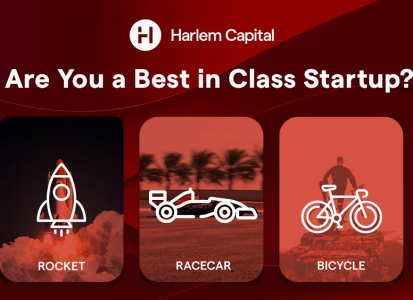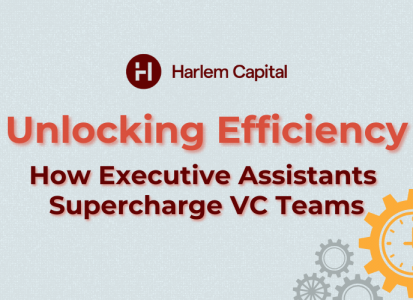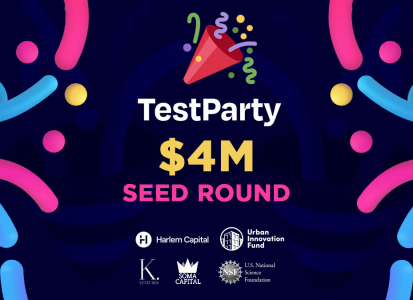Unicorns of Unicorns: A look at the 38 Black and Latino Founded Unicorns
by Harlem Capital

By Henri Pierre-Jacques (Managing Partner) and Sophia Escagedo (Fall Intern 2023)
What is this report?
Since 2013, approximately 1,000 companies have minted as Unicorns in the US. Of those 1,000, 38 of them, or 3.8%, are Black or Latino founded. This compares to Black and Latino companies representing ~3.0% of VC funded companies. They are unicorns of unicorns.
Our newly released 2023 Diverse Unicorn Report takes a deep look into the 38 Black and Latino founded Unicorns, their deal history, and founder profile data. We launched this new report to share their journeys and provide actionable insights for others founders on their path to scale.
In September 2023 we read the Endeavor post, Where Do Unicorns Come From?, which studied the journeys of the top 200 Unicorn founders from the US and emerging markets. This served as a benchmark for the question that was at the forefront of our minds, “Who are the Black and Latino founders that built these Unicorns?” As we studied 60 of these founders, we were able to identify what made them unique as compared to the average Unicorn founder.
From Seed to Unicorn: Who are these Unicorns?
The 38 companies hold a total valuation of $109.0B and raised a total of $20.1B in capital with a median raise of $343.1M. Of these companies, 24% have exited with 6 of the exits being IPOs. Top industries include Fintech, Healthcare, Software, and E-commerce.
In 2017, 50% of the 38 companies reached a Unicorn valuation for the first time in just 3.9 median years from the Seed round. In 2017, VC’s invested $84B into companies across the US, 23% of those dollars went to Unicorns. These were the most invested dollars in one year since the late 90s.
In 2021, 37% of the 38 companies became Unicorns in 5.8 median years from the Seed round. This boom year led to a higher number of overall Unicorns than ever before with $71B dollars invested in 340 unicorn deals.
Raising Capital: States and Sectors
These Unicorns represent 10 headquarter states. California and New York represent 39% and 29% of all diverse Unicorns, respectively. The 15 Unicorns headquartered in California raised a total of $7.9B in capital, while New York’s 9 Unicorns raised $5.1B. Although California has raised more capital overall and has a larger Unicorn population, New York raised 22% more capital on a median basis.
The third largest represented state is Massachusetts, which is home to 5 diverse Unicorns, raising a total of $3.4B in capital. Massachusetts outperforms California and New York on a median basis of capital raised by 54% and 25%, respectively.

Of the 17 industries represented, the most capital raised was $3.8B in FinTech combined among the 8 companies it represents. Healthcare (6 companies) and E-commerce (4 companies) followed with the second and third most capital raised. Interestingly, Software, which is represented by 5 companies, raised 60% less than FinTech, 55% less than Healthcare, and 49% less than E-commerce.

Timing is Everything: Years Between Raises
We tracked the median years from Seed to subsequent deal rounds and found that time between deal rounds was relatively linear. Series G shows a dip in median years from Seed round. Flywire and Gympass are two of the four Unicorns that raised a Series F but did not go on to raise a Series G. Their median years from Seed round were outliers for Series F, which drove up the median years. Excluding these two companies, median years for Series F would be 6.2 years.

When tracking median years between deal rounds by industry, we found that E-commerce maintains the lowest median years and Social Media the highest.
Champions of Black and Latino Unicorns: Top Investors
With these 38 Unicorns come investors who have championed and guided them along the way. Of the notable 12 investors, each has invested in at least 3 of the 38 Unicorns. Tiger Global Management leads the pack with 8 investments.

Builders of Unicorns: Studying 60 Black and Latino Unicorn Founders

Undergraduate Degree: We found that 88% of Black and Latino Unicorn founders completed their undergraduate degree. Of the 88%, 38% attended a US News ranked Top 50 Global University. This is an 11% difference from Endeavor’s report, which found that 97% of the 200 founders studied completed their undergraduate degree and about 33% attended an elite university.
Engineering and Computer Science were the most concentrated undergraduate majors in both our findings and Endeavor’s.
Graduate Degree: 60% of Black and Latino founders hold graduate degrees with 30% being MBA and 23% being PhD’s in Engineering, Computer Science, and other Sciences. In contrast to our findings, Endeavor saw that of the 200 of Unicorn founders, MBAs and PhDs were less common than science and engineering graduate degrees.
Serial Founder: Black and Latino Unicorn founders are made up of 55% serial entrepreneurs, a 6% difference from Endeavors report which found that 49% of the 200 top Unicorn founders were serial entrepreneurs.
Founder Work Experience: Black and Latino Unicorn founders have 9.97 average years (9.5 median years) of work experience prior to founding their Unicorn startup. This falls in line with Endeavor’s findings.

We saw that the undergraduate degrees of founders played a role in median years of work experience prior to founding their Unicorn company. Founders with undergraduate degrees in Economics and Engineering had median years of work experience above the median, Computer Science majors almost at the median, and Business majors fell far below the median.
Founder Birthplace: 58% of Black and Latino Unicorn founders were born outside the US. With the second highest concentration in Latin America followed by Canada. Of the 200 founders studied by Endeavor, 55% were born outside of the US, with top countries of origin being India, Israel, China, Ukraine, Canada, and Russia.

Unicorn Spotlight: Conversations with CityBlock Health and Brex Founders
We sat down with CityBlock Health founder, Dr. Toyin Ajayi, and Brex co-founders, Henrique Dubugras & Pedro Franceschi, to discuss their top insights from their path to Unicorn.

Our 2023 Diverse Unicorn Report paints a portrait of the 3.8% Black and Latino founded Unicorns that have made their mark on the entrepreneurial landscape. We hope the insights gleaned from these companies offer valuable lessons for aspiring Black and Latino founders and lead to a continued increase in their presence among Unicorns. The full report can be found here.


